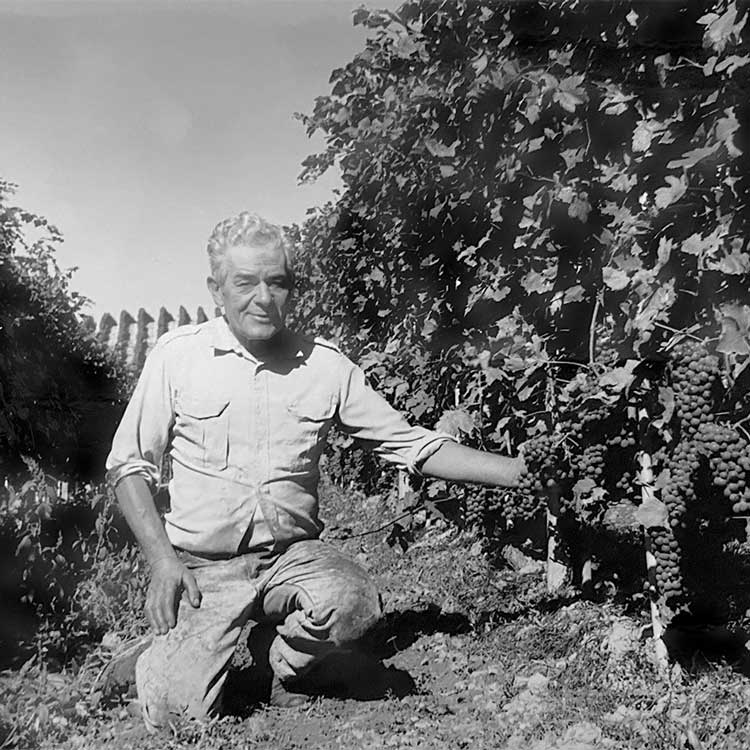In the 1960s, the Langhe were certainly not what they are today, there were few opportunities for young people, and Francesco left them to go to Turin, where he became a traffic warden and started a family.
Over the years, however, Francesco never loses what he feels is a strong, ancestral bond with his land where, following the death of his father Giuseppe – known to everyone as “Pinot” – his mother Lide, a true force of nature, whom everyone in the hamlet knows and still remembers with affection and esteem, still lives.

And it is precisely to those vineyards and that wine that Francesco decides to dedicate the second part of his life: he renovates the cellar of the farmstead (bringing to the surface the original stone walls, which date back to 1760, as can be read in an inscription buried over the years by layers of plaster) and devotes himself, among the first in the area, to the production of Barbera, Dolcetto, Nebbiolo and Barolo from certified organic cultivation. Francesco is not a “great” producer, but he makes great wines, with the mentality, more than that of the entrepreneur, of the true and authentic farmer who loves his land and his rows, which are found in some of the most important cru in the area. Of these, with particular affection, Francesco always cultivated Vigna Colonnello, which was not actually part of the family’s historic plot of land, but was purchased in the 1950s by Pinot for Lide as a personal gift.
Francesco passed away in February 2020. Now the property belongs to his wife Isa and children Giorgio and Silvia, who have entrusted it to the Ceretto family to carry on the cultivation and production of wine.
Meeting with the Ceretto family
Bussia is a name that evokes the history of Barolo, one of the broadest geographic mentions as it is used today but also one of the hills with the most varied taste expressions, to the point of encompassing numerous subzones.
Over the years, attention to detail has become central in the Ceretto household, and when they begin trying to acquire a plot of land in Bussia, the recurring name repeated by the villagers was that of Francesco Clerico.
Here he was born and lived, he left and then returned because he could not resist the call of that land. Here he worked his vineyards with common sense, adopting sustainable practices as a forerunner, perhaps unaware, but this fascinated the Ceretto family who have been advocating a more respectful approach to agriculture for decades. They met, especially Marcello Ceretto, who maintained relations with Francesco.
… when they begin trying to acquire a parcel of land in Bussia, the recurring name that villagers repeated was that of Francesco Clerico.

